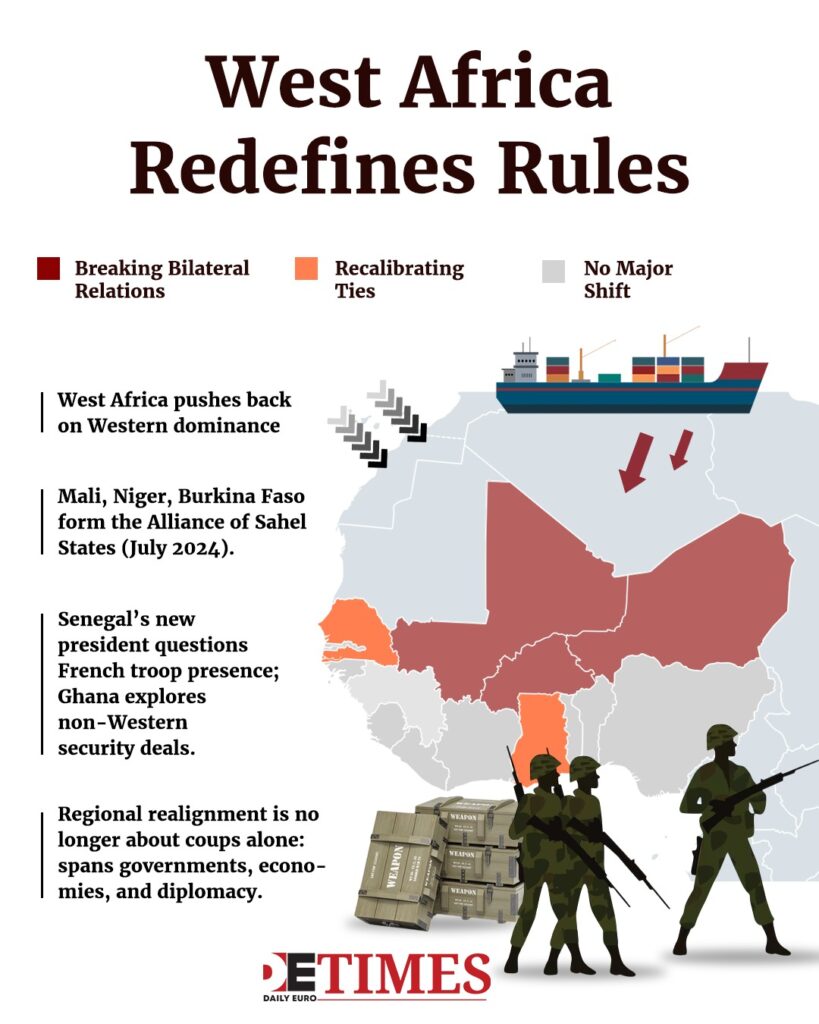The arrest of French embassy worker Yann Vezilier on accusations of regime change in Bamako, Mali last week speak volumes about how African military leaders now view Western diplomatic missions. Gone are the days when embassy staff could operate without fear of becoming suspects themselves.
Diplomatic Immunity Gets Tested in Bamako
Diplomatic conventions have protected embassy workers for centuries.
Mali’s military government accused Vezilier of working with two generals to destabilise their rule. France dismissed the charges as baseless, but the arrest sends a clear message about changing power dynamics. Western diplomats no longer enjoy the protection they once took for granted.
Sahel States Build New Resistance Networks
Military governments across West Africa have learnt to push back against foreign interference.
The Alliance of Sahel States, formed by Mali, Niger, and Burkina Faso in July 2024, created a mutual defence pact against external threats. When one member faces pressure, the others provide backing. Regional unity has replaced isolated vulnerability.
Economic partnerships have also shifted away from traditional allies. Russia, China, and Türkiye now offer military equipment and investment without demanding political changes. These alternatives give African leaders more room to manoeuvre than they had before.
Popular support for anti-Western policies has grown stronger throughout the region. Street demonstrations regularly target French facilities and personnel. Citizens increasingly see foreign embassies as sources of trouble rather than help.
Critics Miss the Bigger Picture Here
Some Western analysts dismiss Mali’s actions as desperate attempts to deflect attention from domestic problems.
They point to ongoing security issues and economic struggles as proof that military leaders lack confidence. The embassy arrest, they suggest, serves as a smokescreen for governance failures rather than genuine security concerns.
The coordinated nature of anti-Western moves across multiple countries tells a different story. Three separate military governments have taken similar steps to reduce foreign influence. Each has maintained power for years despite predictions of collapse. The pattern shows strategic thinking rather than random paranoia.
African States Set Terms for Engagement
European countries must accept that the old rules no longer apply in West Africa.
Regime change through covert operations, economic pressure, and military intervention has lost its effectiveness.
African governments now possess both the knowledge and tools to counter such tactics. They can identify and expel foreign agents before plans take root.
European policymakers should focus on building practical relationships with existing governments. Trade deals, development projects, and security cooperation can proceed without demanding leadership changes. The choice is adaptation or continued loss of influence across the continent.

Embassy Functions Face New Limits
Diplomatic missions throughout Africa now work under different constraints.
Staff must navigate heightened suspicion about their contacts and activities. Traditional intelligence gathering faces fresh obstacles. Host governments monitor diplomatic communications more closely and interpret routine work through a security lens.
Consequences extend far beyond individual cases. European countries may need to cut embassy staff, limit outreach programmes, and avoid meetings with opposition figures.
Regional Examples Show Widespread Changes
Mali’s move reflects broader trends across West Africa.
Niger expelled French forces after its 2023 coup. Burkina Faso ended defence agreements with France. Chad terminated its security partnership despite maintaining civilian rule.
Countries without coups have also distanced themselves from Western partners. Senegal’s new president questions French military presence. Ghana explores alternatives to Western security cooperation. The shift spans different government types and reaches beyond Franco-African relationships.
Keep up with Daily Euro Times for more updates!
Read also:
New Sahel Alliance Tariffs Threaten ECOWAS and AfCFTA Goals
Separation No More: The Sahel Files for Divorce
France Out, Africa In: Senegal, ECOWAS, and Sahel Integration






